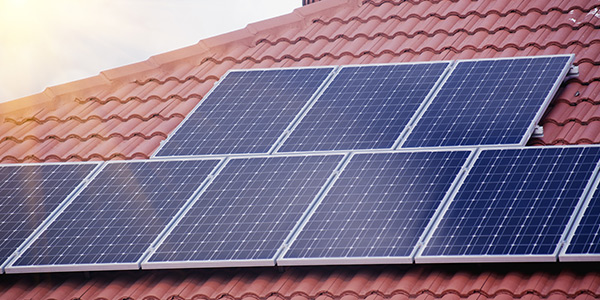A plan to build small community solar projects and reduce electric bills for some low-income residents in Nevada is facing pushback from consumer advocates, who object to passing program costs to nonparticipating ratepayers.
The proposed Expanded Solar Access Program is the result of Assembly Bill 465, passed by the Nevada legislature in 2019. The Public Utilities Commission of Nevada has been conducting a rulemaking since mid-2019 to spell out details of the program, which would be run by the state’s monopoly electric provider, NV Energy.
AB465 specifies that the cost of the discount for low-income customers must be spread across all of the utility’s ratepayers.
But the bill does not contain a similar provision for other costs of the program, according to the Bureau of Consumer Protection (BCP), which is part of the Nevada Attorney General’s Office. Yet PUCN’s proposed regulation states that “all costs related to the Expanded Solar Access Program are public policy costs that must be charged to all customer classes of an electric utility.”
“The only subsidy allowed under Assembly Bill 465 to be charged to nonparticipating customers is that of the low-income discount,” Senior Deputy Attorney General Michael Saunders said in a Feb. 16 letter to PUCN. “The Expanded Solar Access Program was intended to be a stand-alone program with its costs covered by participating customers.”
The letter reiterated concerns that BCP expressed in written comments last year. And PUCN’s regulatory operations staff, which is separate from the agency’s decision-making side, have also expressed concerns about spreading program costs other than the low-income discount to all ratepayers.
“This outcome does not seem just and reasonable since remaining ratepayers will receive no direct benefit from this program,” Assistant Staff Counsel Shelly Cassity said in a May 29 letter to the commission.
NV Energy did not respond to requests for comment on the Expanded Solar Access Program. A spokesperson for the attorney general’s office said BCP could not comment on issues related to rulemaking.
PUCN held a workshop and a hearing last week on its draft regulation for the program. The commission now plans to release a revised draft, to be followed by another written comment period and hearing.
As outlined in AB465, which was sponsored by Assemblywoman Daniele Monroe-Moreno (D) of North Las Vegas, the Expanded Solar Access Program would include three to 10 community-based solar projects in areas with a concentration of low-income residents. NV Energy would own and operate the solar facilities, which would be connected to the company’s distribution system.
NV Energy would also include at least one utility-scale solar resource in the program. The utility-scale facility is necessary to make the program affordable to residents, NV Energy officials said during hearings on the bill.
Program participants would fall into three categories:
- nonprofits and disadvantaged businesses, including those owned by minorities or low-income residents,
- residents whose income falls below 80% of the area median, and
- residential customers who show that they cannot install their own solar projects because of rental agreements or site constraints.
The program would establish its own electric rates. Low-income residents in the program would be guaranteed a reduced rate. Other participants would have “stability and predictability” in their electric rates, although reduced rates are not guaranteed.
In another provision, the Nevada Department of Employment, Training and Rehabilitation would work with employers and the International Brotherhood of Electrical Workers to create solar job opportunities and a training program.
Break from Tradition
Monroe-Moreno has noted that AB465 is not a traditional community solar program.
In general, community solar programs allow participants to buy or lease part of an off-site solar photovoltaic system. The programs are also known as shared solar or solar gardens. As of June, community solar projects were found in 39 states and Washington, D.C., according to the National Renewable Energy Laboratory within the U.S. Department of Energy.
Nevada came close to enacting a community solar bill during the 2017 legislative session.
Senate Bill 392, by Sen. Mo Denis (D) of Las Vegas, would have allowed community solar gardens run by subscriber organizations, with individual subscribers receiving a credit on their electric bill for their share of electricity generated by the solar garden.
The legislature passed SB392, but then-Gov. Brian Sandoval vetoed it, saying he was concerned that community solar gardens would operate as small utilities, only without the same level of regulation.
Sandoval was also concerned about the bill’s timing. Nevada residents were preparing to vote in November 2018 on the Energy Choice Initiative, which would have moved the state from an electric monopoly to a competitive market. The initiative failed.
AB465 garnered support from organizations including the Sierra Club Toiyabe Chapter, Western Resource Advocates, IBEW and the Nevada State AFL-CIO. Supporters pointed to the bill’s environmental and workforce benefits.
Nevada Conservation League representative Kyle Davis said during a Senate committee hearing that although the bill wouldn’t create a traditional community solar program, it would be “a step forward, especially for low-income ratepayers.”
But some groups opposed AB465.
The Solar Energies Industry Association, a national trade group, objected to the fact that the bill would allow solar projects approved as long ago as 2018 to be included in the program. SEIA said it would prefer that the program add new solar projects.
The Coalition for Community Solar Access shared SEIA’s concern. The group also said it wasn’t clear how much program participants would save on their electric bills.
Those issues and others “make this bill … an unnecessary and deeply flawed experiment for the state, especially with tried-and-true best practices to be leveraged from over a dozen other states,” CCSA Executive Director Jeff Cramer said in a May 2019 letter to the Senate Committee on Growth and Infrastructure.
